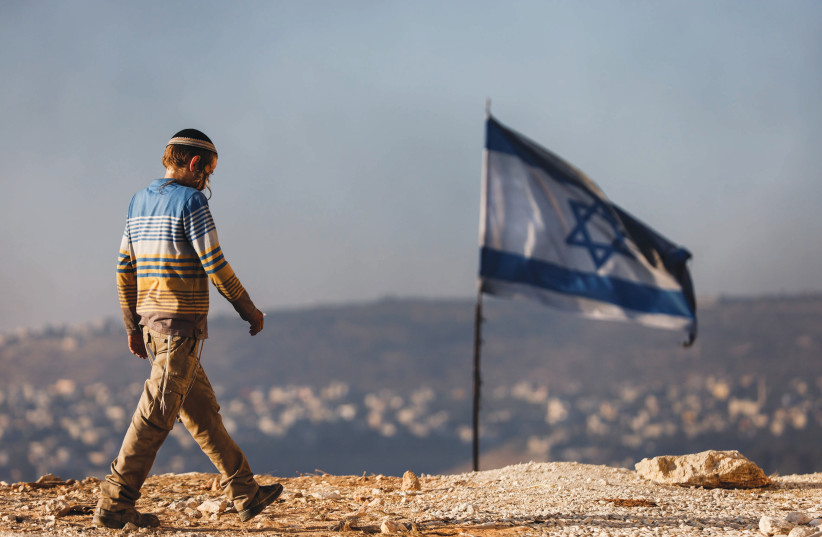Prime Minister Naftali Bennett's government is intent on upholding its agreement to allow a yeshiva on the West Bank Evyatar outpost, Culture and Sports Minister Hili Tropper (Blue and White) said on Tuesday.
"We want to uphold this agreement," Tropper told the annual Jerusalem Conference of the BeSheva Group.
He spoke just one day after Foreign Minister Yair Lapid said told his Yesh Atid party's Knesset faction that he opposed the agreement his government made with settlers on Evyatar at the end of June.
The 50 families that lived there agreed to voluntarily evacuate the outposts they had built in May, in the aftermath of the nearby terror attack that claimed the life of Yehuda Guetta, 19.
In exchange, the government agreed to allow for a yeshiva and a new community on the hilltop off of Route 505 in Samaria, once it surveyed the land status to ensure that there was enough state land to support the two initiatives.

Such a survey has been completed and outgoing Attorney General Avichai Mandelblit said there was no legal impediment to upholding the deal. The matter is now in the hands of Defense Minister Benny Gantz (Blue and White.
On Monday, according to the Arutz Sheva website, Gantz told his faction meeting he would support the deal. But the matter has split the government, with Meretz and Yesh Atid coming out against it.
Lapid told his Knesset faction on Monday, "This agreement was not made with me. I represent half of the government and therefore in my eyes it is not valid and I oppose it."
On Tuesday Tropper said everyone in the government, aside apparently from Lapid, knew about this deal.
This deal was not "done under the table," Tropper said, adding that it was done in coordination with Bennett, together with the cabinet secretary and Gantz.
The issue of Evyatar caught the government during its first weeks, Tropper explained.
Gantz didn't want to see a repeat of what occurred at the Amona outpost, Tropper said. His words were a reference to the violent clashes that had occurred between settlers and security forces a number of times at the Amona outpost in the Binyamin region of the West Bank. This included the forced demolition of nine permanent homes in Amona in 2006 and the full evacuation of the outpost in 2017.
"I hope we can stand by the agreement, including creating an educational institution at Evyatar. There are still stumbling blocks along the way, but there is a true will" to abide by the deal, he said.
The Evyatar initiative was spearheaded by the grassroots Nahala Movement headed by Daniella Weiss and the Samaria Regional Council headed by Yossi Dagan.
To pressure Gantz to move on the matter, a small group of settlers, including yeshiva students, have sat since Sunday at the edge of the Evyatar hilltop.
"We are presenting here a demand from the government to fulfill its obligation and commitment to the Evyatar agreement," Weiss said.
The land survey has been completed, the attorney general has rendered his opinion, Weiss said.
"Now we are looking for a formal declaration from Defense Minister Gantz," she said.
The push to settle the Evyatar hilltop is part of a larger drive to cement Israel's hold on Judea and Samaria, particularly Area C of the West Bank.
The international community and the United States have opposed such activity.
The Foreign Ministry and Lapid had warned that moves to legalize the Evyatar hilltop for Jewish settlement could harm Israel's standing international and weaken its relations with its staunchest allies, including the US.
